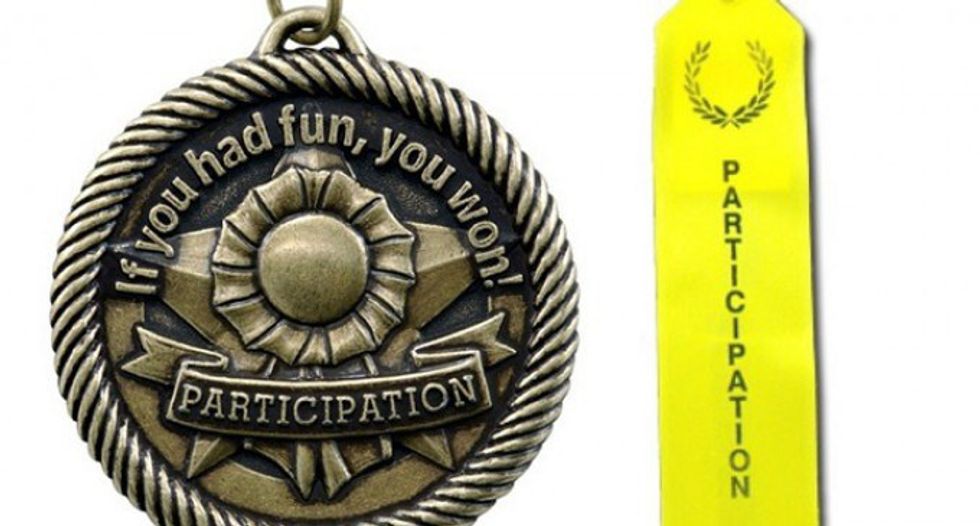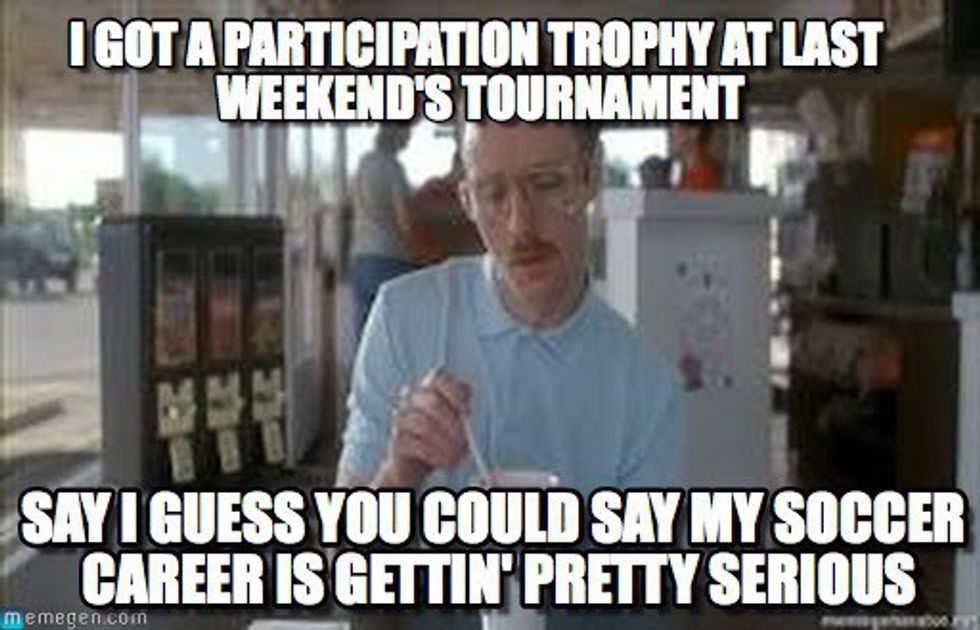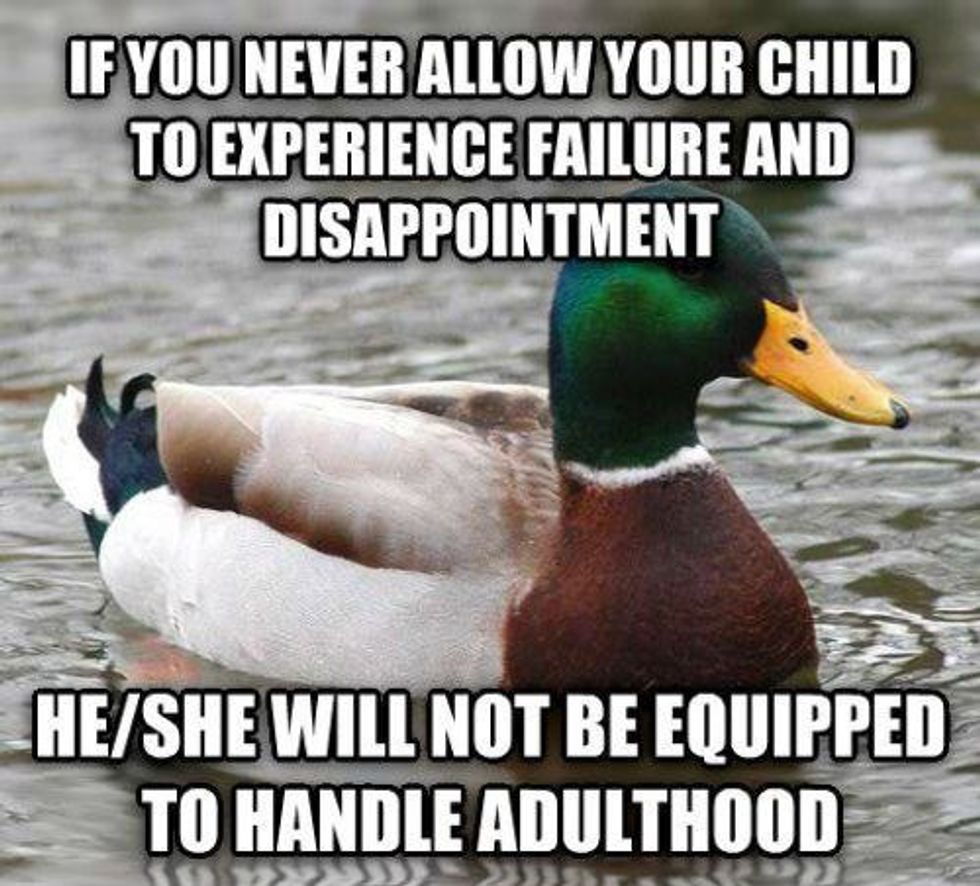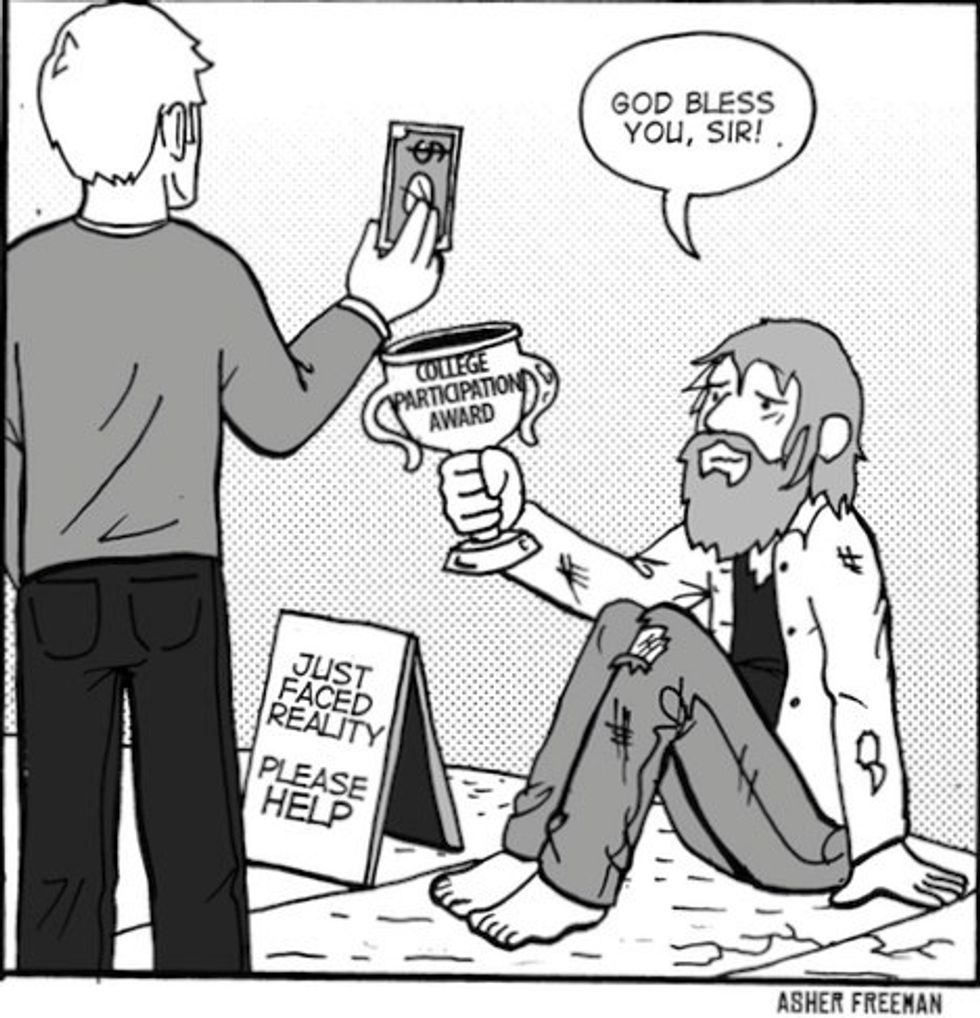Members of society are constantly striving to be equal, or to belong. While, in most cases, this is a great approach to figuring out how to get along, in the area of sports it does not seem to be helping. Today, trophies are being given for just participating, and there do not seem to be any distinguishable characteristics between the winners and the losers. At a young age, this seems to work well in a short term setting. For instance, if Billy signs up for T-Ball, he is going to have fun -- scores are not being kept at that level, so it's okay for all the boys in T-ball to get a trophy. At what age do we begin to draw a line of winners and losers? When will we begin to teach kids that just participating is not always good enough?
Sore Winners and Losers
Participation trophies do not allow the children to learn how to win or lose. As the children grow older, they begin to realize that they may be better than other teams, and begin to isolate themselves from the "bad" players. If we start teaching kids at a young age how to behave when they win games, the lack of sportsmanship will improve. Also, we need to teach kids that, sometimes, we will lose.
If you see other kids getting trophies, it should not make you feel left out. Instead, it should motivate the kids to practice more and to do better the next time. We have become so sensitive to how kids may feel if they lose, are so opposed to teaching them the lessons that come out of losing. As they grow older, there will be jobs they do not get, or opportunities that they barely miss. If we encourage the "it'll be okay, Johnny" approach, what are we learning? We aren't learning anything.
We need to help kids identify what the issues are, and react to what needs to be fixed. This creates problem-solving skills and avoids the "not fair" behavior we are seeing. We lose the ability to set goals for the kids, and lack the ambition of being better. If every kid gets the same reward at the end of it, what is motivating the kids to do better?
Lack of Motivation
Providing kids with participation trophies does not motivate them to become better, but instead teaches them that, no matter how poorly they perform, they will receive the same reward in the end. At a young age, children begin to pick up on the messages being sent by their environment.
For example, if a kid is told to clean his room because otherwise he will not be able to play video games, he generally will clean his room. What happens if you allow him to play video games without him successfully cleaning his room, but simply "trying" to clean it? The kid will learn he does not have to put forth the effort to get the outcome he desires.
Alongside Common Core, participation trophies are teaching kids that it is okay to not be successful, you will get the same outcome regardless. Kids are constantly looking for gratification for completing simple tasks. If you give them a trophy for showing up, it teaches them gratification for just arriving. As they go through school, they expect gratification for getting their homework done. When do we stop giving gratification for doing what is expected? How can we better encourage motivation among children that will carry them into adulthood?
Kids Will Be Discouraged and Not Play If They See Others Get a Trophy
This is the main argument for participation trophies. If you approach the situation as a learning experience, and an opportunity to set goals and improve your skills, the child will succeed. We are becoming a lazy society that feels they are entitled to things without having to work hard for them. Does this stem from receiving participation trophies? It could.
We need to create more go-getters, and stop embracing the culture of "it's okay to be in last place. You tried your best." Teach kids that if you set goals and work hard, you will get the outcome you desire. "What happens when you don't get the outcome after working hard?" You then realize that you can work harder next time. It will teach society that opportunities are equal among all of us, but the difference is the amount of hard work others put into becoming successful. Participation trophies take away the glorification of working hard and achieving goals. Instead, they are teaching us to just show up.
Effects on Adulthood
As kids get older, they will begin to realize that others have worked hard and got a greater outcome. Instead of admiration, kids feel negatively to those who have become successful. Instead of working hard to get the scholarships to go to school, they just complain that it costs too much to go to school. Instead of working hard in the classroom, they blame the teacher. Instead of intense job hunting and improving skills to get a job, they blame the job market.
While some of the arguments have some merit, we all know that majority of the time they do not. Where is this behavior beginning? Where are we learning that we deserve to be as successful as others? Where are we harvesting the "I shouldn't have to work this hard?" Perhaps the participation trophies are an outcome of this behavior, or could it be where it all began?

























